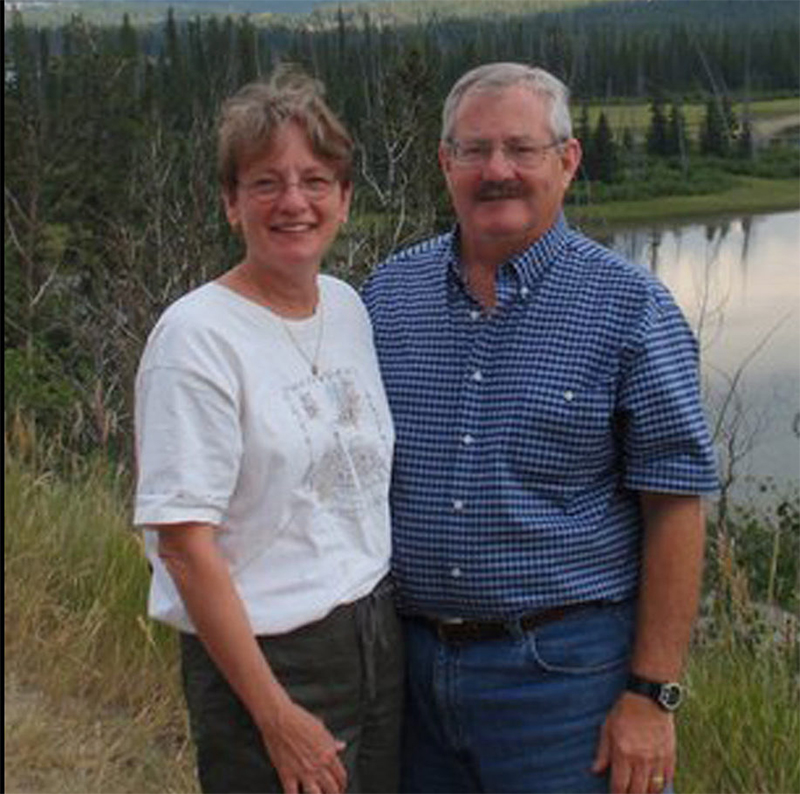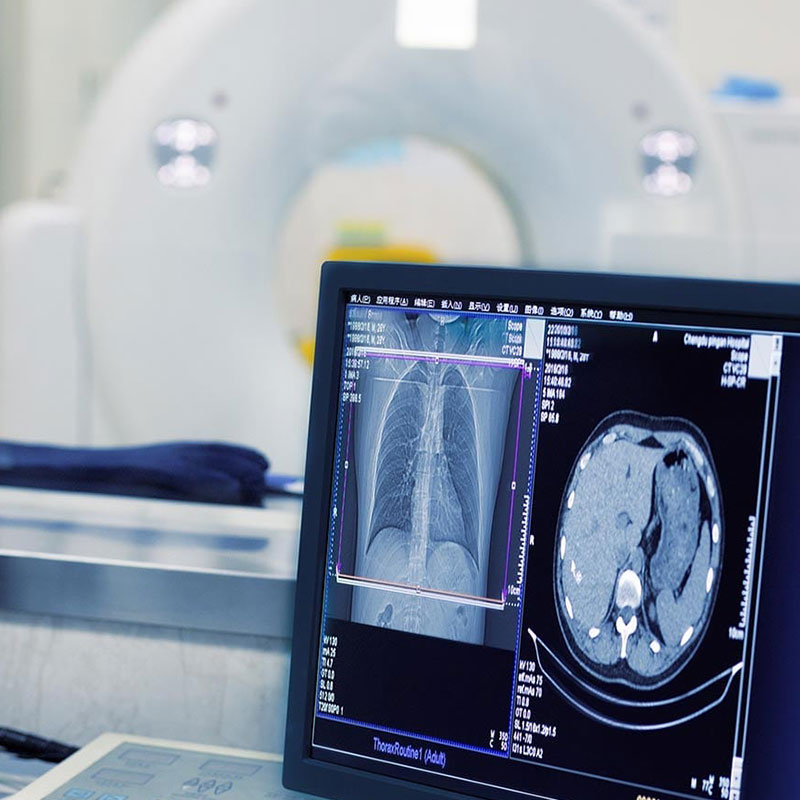Life After Bypass

January 22, 2021
Typically, we photograph every patient appearing in HealthU. Because this story was planned during the surge of COVID-19, that contact would have been too risky. Instead, our team took a creative approach and replaced photo shoots with illustrated portraits of patients.
When Jeffrey Wells woke up one Saturday morning in August 2020 feeling “like an elephant was on my chest,” the retired police officer’s first inclination was to relax and wait a few minutes until he felt better. The symptom, though worrisome, could be checked during a routine doctor’s appointment two weeks later, he decided.
Luckily for Jeffrey, his neighbor is a nurse who, upon hearing him casually mention that morning’s incident, took his pulse and blood pressure, and urged his wife to get him to a hospital immediately.
The 73-year-old father and grandfather now looks back on the experience as a serendipitous series of events that saved his life. Jeffrey’s successful treatment resulted from quick, coordinated care at two Hackensack Meridian Health facilities and culminated with cardiac bypass surgery that renewed oxygen-rich blood flow to his heart.
“Because I’d never felt that chest pressure before and it didn’t last long, I sort of blew it off,” the Point Pleasant, New Jersey, resident recalls. “Now that I think about it, going up and down stairs had been getting troublesome for about two years. But I didn’t pick up on that. I thought it was just due to the fact that I was getting older.”
Seamless Care
Jeffrey’s first stop was Ocean Medical Center, where clinicians immediately performed an electrocardiogram (ECG) to analyze his heart’s rhythm and electrical activity. Abnormal findings sealed his need to be hospitalized and stabilized with heart medications over the next few days.
Next came a stress test by cardiologist Todd Cohen, D.O., to look further at heart rhythm and determine if blood flow to Jeffrey’s heart was sufficient. That test also dimmed hopes that Jeffrey had only a minor problem, showing a highly concerning irregular heartbeat.
Worse, Jeffrey began experiencing chest pains during and after the stress test. Doctors decided he needed an emergency cardiac catheterization, a minimally invasive procedure that threads a hollow, narrow tube into arteries surrounding the heart to locate any narrowing or blockages. The procedure revealed multiple life-threatening blockages.
“He had such a bad reaction to initial testing that we suspected he had severe coronary artery disease,” Dr. Cohen explains. “It turns out his blockages were all severe and affected all four of his coronary arteries.”
“My first thought on hearing the news was, ‘I’m turning into my father,’” Jeffrey recalls, adding that his dad dealt with the same condition many years before. “I was kind of shocked, even knowing I was overweight.”
Jeffrey was quickly transferred to Jersey Shore University Medical Center for a bypass operation to restore proper blood flow to the muscle. “I had full confidence, having heard about Jersey Shore’s reputation for its cardiac unit,” he says. “I wasn’t nervous about the surgery.”
Performed by cardiothoracic surgeon David Johnson, M.D., the open heart surgery would prove complicated. Prior blood clots in Jeffrey’s legs had damaged veins that Dr. Johnson would normally use to replace clogged heart vessels. Instead, the surgeon took pieces of vessels from Jeffrey’s arms and chest wall in addition to a small section from one leg.
“It was a bit more of a challenging case because we had to harvest arteries from elsewhere,” Dr. Johnson explains.
New Perspective

After a weeklong hospital stay and remarkably little pain, Jeffrey went home to continue a smooth recovery. Home care nurses showed him exercises to help rebuild his strength. His recovery was boosted further by the cardiac rehabilitation program at Ocean that included exercise training, education on heart-healthy living and counseling to reduce stress. Jeffrey has already lost 35 pounds since his surgery, and he has gained heightened appreciation for what he needs to do to maintain his newfound health.
“I was always in pretty good shape, but when I hit my 70s, I thought I was just slowing down. But my diet was horrible, and my cabinets were filled with stuff that I shouldn’t be eating,” he says. “Now I go up and down the stairs with no problem, and I don’t even hold the rail. I can see that health isn’t only about your age, but how you treat yourself.”
Next Steps & Resources
- Meet your sources: Todd Cohen, D.O. and David Johnson, M.D.
- To make an appointment with Todd Cohen, D.O., David Johnson, M.D. or another provider, call 800-822-8905 or visit our website
The material provided through HealthU is intended to be used as general information only and should not replace the advice of your physician. Always consult your physician for individual care.
Find a doctor near me
How Weight Impacts Heart Health

Learn how weight affects heart health. Dr. Safi explains risks & offers advice on diet and exercise to improve cardiovascular health. Protect your heart today.
Top Advice for Improving Heart Health

Improve your heart health with top advice from Dr. Husain. Learn how lifestyle choices impact your cardiac health and reduce risks. Get expert tips now.
Find a doctor near me

After Mitral Valve Repair Three Years Ago, Where is She Now?
Mitral valve repair success story. Emer's full life after surgery at Mountainside Medical Center. Learn how she thrives. Schedule your appointment today.

After a Heart Attack in His Thirties, Where is He Now?
Heart attack survivor Simon Blazejowicz shares his recovery journey after treatment at JFK University Medical Center. Learn from his experience and prioritize your heart health. Schedule an appointment today.

After a Triple Bypass Three Years Ago, Where is He Now?
Triple bypass surgery recovery story: Joe Leone Introna shares his journey to better heart health. Learn from his experience and find resources for your heart health.

After Experiencing an Aortic Aneurysm, Where is He Now?
Aortic aneurysm survivor Thomas Redmond shares his recovery journey and advice. Learn how he maintains his health and find a primary care physician.
